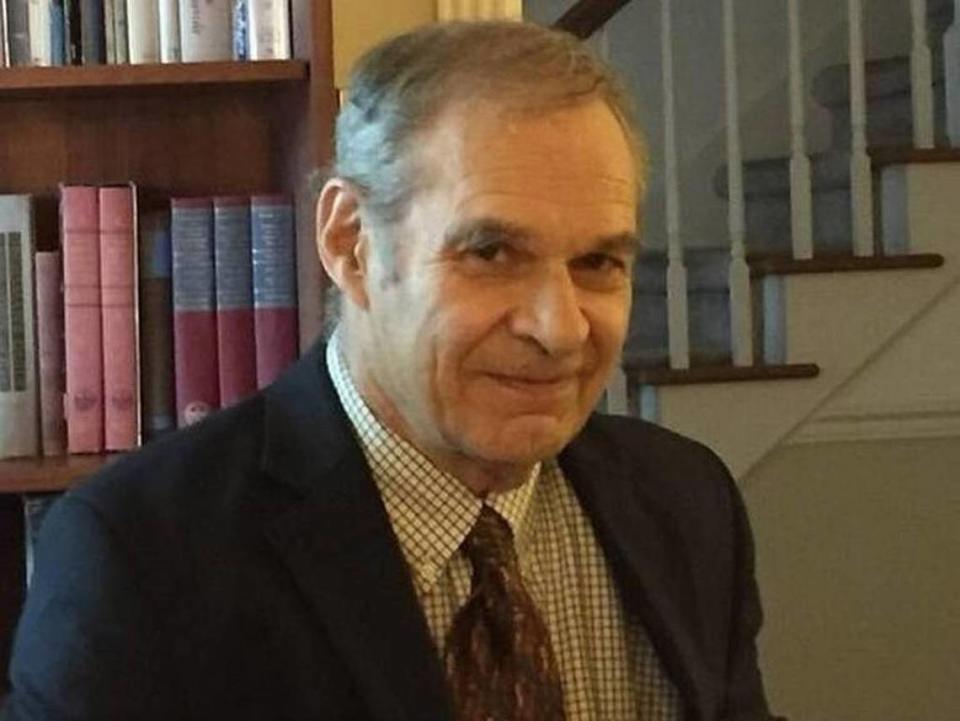Republican ties to domestic terrorists explain why they want to look the other way on riot
The Biden administration is mobilizing resources to address the long-neglected threat of private militias and white supremacists, a menace whose chickens came home to roost on January 6.
The government confronted that danger in the 1990s when events at Ruby Ridge, Waco, and Oklahoma City caused the Justice Department and FBI to invest in resources to combat domestic terrorism.
9/11 brought a sea change. Intelligence agencies turned their attention to preventing external attacks by Islamic jihadists. This shift gave far right extremists and white supremacist groups free reign to grow. They exploited the internet and social media to recruit, spread propaganda, and carry out acts of violence.
By 2009 Daryl Johnson, an analyst at the Department of Homeland Security, wrote an internal report warning that the agency’s preoccupation with al Qaeda and Islamic error caused it to ignore domestic terrorism. He argued that the 2008 economic collapse, the election of the first black president, and culture wars, all forecast an imminent surge in right-wing domestic terrorism.
He pointed to numerous domestic terror attacks during the past decades and a rising white supremacist threat. The DHS employed up to 40 analysts looking at al-Qaida and other jihadist groups. Johnson’s team of just six monitored several violent domestic groups, including white supremacists.
The report was leaked to a birther website and right-wing media exploded with outrage, joined by conservative spokesmen and Republican members of the House and Senate. Fox News and conservative columnists savagely attacked the report with false claims that it represented the Obama administration’s secret plan to silence and smear conservative opposition.
The Tea Party movement, then in full bloom, charged that the report targeted its freedom to protest.
Mentioning only the Oklahoma City bomber by name, the report described “the willingness of a small percentage” of returning veterans to join extremist groups because they were “disgruntled, disillusioned, or suffering from the psychological effects of war.” And extremist groups were now targeting returning veterans. Republicans accused Johnson of dishonoring veterans.
Under a barrage of criticism, DHS caved in. Johnson’s budget was slashed, his section of the agency the Extremism and Radicalism Branch was disbanded and its work informing law enforcement about domestic terrorism cancelled.
Pilloried by the right, Johnson is a conservative Mormon, and third-generation Republican with military veterans among his extended family.
Homeland Security Secretary Janet Napolitano withdrew the report and apologized to veterans. The Obama administration then concentrated on a counter-terrorism effort judged by independent analysts to be “deeply flawed.” It focused primarily on Muslim-American communities to engage their cooperation, but that Muslims saw as discriminatory.
Meanwhile, extremist militias and white supremacists proliferated during Obama’s first term, with militia groups increasing from 149 in 2008 to nearly 600 in 2012. With white supremacist fellow traveler Trump in office extremist groups and militias felt emboldened and stepped up their recruiting.
According to Johnson hundreds of thousands of heavily armed citizens exist filled with anger against Trump’s designated enemies.
Trump and his appointees in Homeland Security downplayed FBI warnings and their own assessments of the threat posed by white supremacist terrorists, and significantly reduced DHS’s resources to address it.
As left-wing and far-right radicals clashed in Portland, Oregon, Trump called for Antifa to be labeled a terrorist organization, ignoring white supremacists. Republican Senators addressing domestic violence have echoed his deflection to concentrate on Antifa, an unorganized group that has engaged in street brawls but no killings. From 2015 to 2019 white nationalists claimed 64 victims.
In 2019 a memo circulated among House Republicans advising them to respond to questions about white nationalist mass shootings by condemning it but emphasizing that “both sides,” right and left, are to blame. In the Senate, when House Democrats introduced a clause into the Defense Authorization Act to have military recruits screened for white nationalist ideology, the Republican Senate buried it.
A Whistleblower Complaint charged that Trump’s acting head of DHS ordered changes to intelligence reports to marginalize white nationalists and feature Trump’s lies that the anti-fascists constituted the primary domestic terror threat facing the country.
Since 2008 ties between the state and local Republican infrastructure and extremist militias has grown. Republican politicians from Michigan to Idaho to Texas have appeared in public with members of the Oath Keepers and other militias that have mustered at Trump campaign rallies.
The Republican Party’s ties with radical right-wing paramilitaries have grown so extensive that “It is like the Republican Party has its own domestic army.”
Substantial numbers of that “domestic army” filled the ranks of the January 6 insurrectionists that invaded the Capitol, trashed it, and threatened the lives of members of Congress and Vice President Pence. No wonder denialist Trump Congressional Republicans, who cowered in fear on January 6, are inventing a new Big Lie describing the frenzied mob as peaceful and like a normal tour.
President Biden, Attorney General Merrick Garland, and Homeland Security Alejandro N. Mayorkas, and the FBI have now focused on home grown terrorism as “the most lethal and persistent” terrorism threat to the homeland. Defense Secretary Lloyd Austin ordered the Pentagon to confront white supremacists in the ranks and develop measures to prevent veterans from being drawn to extremist groups.
When Garland and Mayorkas told the Senate Appropriations Committee that white supremacists constitute the greatest domestic terror threat, Republicans focused instead on border security and the violence involved in protesting police violence last summer, equating the two.
And Republican leaders in both House and Senate, Kevin McCarthy and Mitch McConnell, oppose a bipartisan commission (calling it “partisan”?) passed by House Democrats to investigate the riot. They fear, of course, exposure of the ties throughout their party to domestic terrorists.
Ron Formisano is the author of “American Oligarchy: The Permanent Political Class” and “Thorne’s Hazards: A Novel.”


